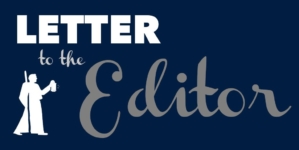Parties should explore alliances to maximise seat allocations
Dear Editor,
This is in reference to your news report that GECOM has approved eleven parties for the March 2 elections.
Based on the most recent opinion polling (as of last weekend) conducted by this writer, only the two major parties (PPP and PNC-led coalition) are guaranteed to win representation in all of the ten regions and the national parliament. It will be wise, therefore, for the nine minor parties in the fray to seek some kind of coalition or combination in order to increase the likelihood of winning regional and national seats (geographic as well as top up). The minor parties should explore the possibility of linking up among themselves to maximise seat allotment. The major parties should also consider linking up with the minor parties to add to their vote banks and seats allotment.
I had queried two constitutional lawyers whether post-nomination coalition or alliance or some kind of link-up was officially possible. They are not sure. But GECOM had indicated prior to nomination day (January 10) that the parties had about a week to enter into some kind of alliance post submission of lists; it is not clear how such a coalition, alliance, or combination pact can be done as per GECOM’s edict.
GECOM did not give any definitive statements. It needs clarification. I don’t think anyone asked GECOM that question. One needs to re-examine the constitution whether a pre-election election link-up is permissible.
Dr. Steve Surujbally is an expert par excellence on the subject; no one knows election laws more than him. He should be consulted on this and other issues by the parties and by even by GECOM itself. In fact, I am rather surprised that GECOM has not sought his services on election matters – his knowledge and expertise are going to waste.
The critical question — is post-nomination link-up possible and if so how? In previous elections, such a possibility was not explored, and as such, it was not done. Had it been explored and permitted, then the minor parties (like TUF, ROAR, JFA) could have obtained a seat in previous elections or a major party could have won an additional seat in a link-up.
If permissible under the law and can still be effected now, then the likelihood of minor parties winning seats at the regional and national levels would be substantially increased. This could enable them to hold the balance of power in the national parliament, if not also in the regional councils should they win seats and the party that wins the Presidency lacks a majority – that scenario is possible.
To win a parliamentary seat, a party would need approximately 5,000 votes. As per the latest polling I conducted, only three minor parties are around that threshold or crossing it. Two other minor parties are halfway there. And two minor parties are very far off from the threshold.
None of the minor parties should be disheartened and give up hope. Many voters are still sitting on the fence and deciding which party to give their ballot. All of the parties have to earn their votes with serious ground (perhaps house-to-house) campaign. But alliance or combinations should be explored even at this late hour to maximise seats.
Yours truly,
Vishnu Bisram (PhD Political Science)






















